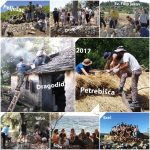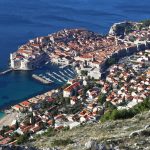Ever heard of Ojkanje?
Ojkanje is a way of singing performed by male or female singers using a distinctive voice shaking techniques and characteristic singing ”from the throat”. The respective duration of every song is determined by how long can the lead singer hold his or her breath.
Melodies are based on limited, usually chromatic, total scales and the lyrics cover diverse themes ranging from love to current social issues and politics. The lead singer usually sings the first line and then the second line is accompanied by a group of singers singing the text or just a vowel (a dark ”e” or open ”o”), and this is from where the name “Ojkanje” came from. It is typical to hear “Oj” being shouted when the Ojkanje song starts.
In the past, this type of singing was used as a way of communication while going about everyday jobs and duties, while travelling, and as a way of entertainment for shepherds or during the winter. In this way, the singers would sing about local history and culture and share it to listeners.
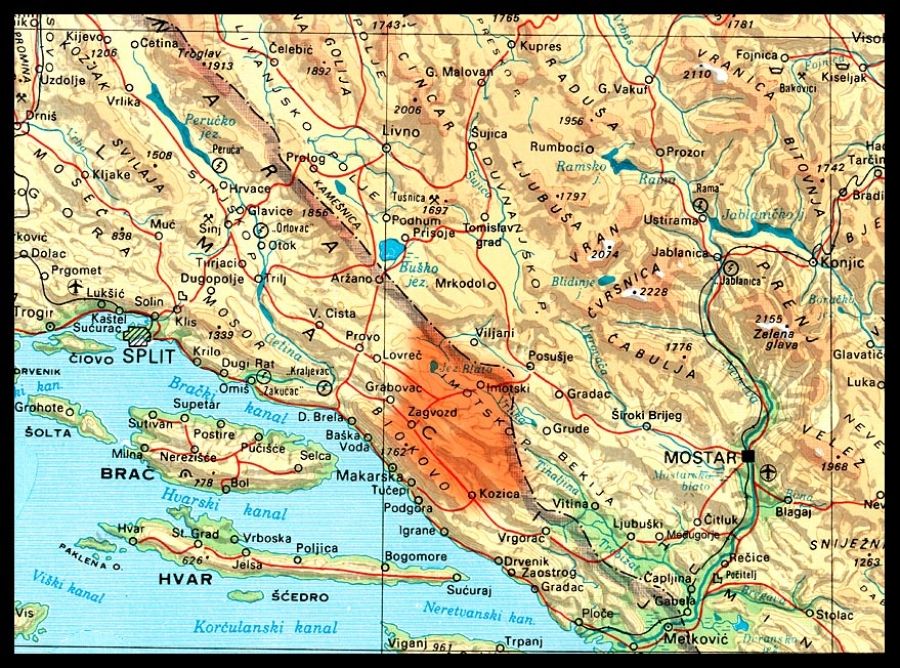
Ojkanje was inscribed on the List of Intangible Cultural Heritage in Need of Urgent Safeguarding in 2010. The official UNESCO report recognised the importance of this singing for local communities. The main reason for the protection of this musical expression is the current break in the continuity of transmitting this heritage to new generations. Before, Ojkanje was only passed on orally and the younger generations would listen and imitate seniors and then would adopt, perform and improve the tradition. Nowadays, the tradition bearers are in most cases older people who are the last to know these specific singing styles.
Almost all of them think Ojkanje is a recognisable symbol of their identity and these people are usually well respected members of their communities. With people moving away from rural regions and changes in lifestyle, new
generations don’t learn how to sing and this isn’t part of their lives. This is why the media and local folkore groups are of significant importance in presenting this heritage.
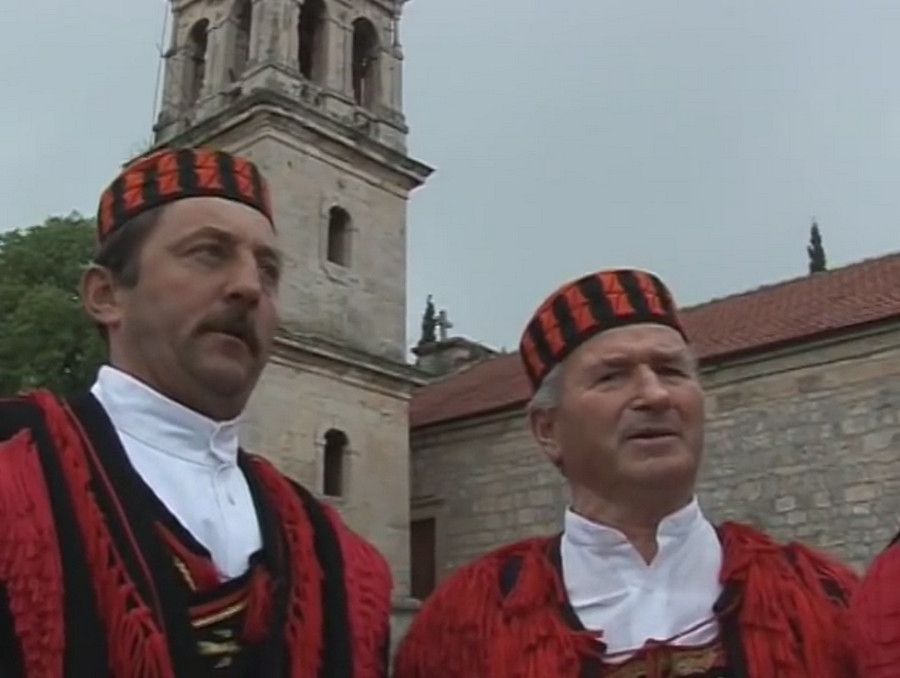
Ojkanje is a tradition which has continuity through centuries and is an essential part of certain rural communities. Individual techniques of voice-shaking, numerous two-part forms always depended on talented, skilful singers, their capacity to perform, but also on their ability to pass on their knowledge to new generations. Due to the fact that less and less people with these skills are around, some forms of this type of singing disappeared while some are still alive thanks to the media and local folklore groups who are ones to organise events and encourage new generations to learn this skill.
Ojkanje is usually transmitted and taught orally but modern media helps in learning too.
According to some sources, Ojkanje is considered the oldest type of singing in Croatia – for some it presents residual of the archaic pre-Slavic Balkan singing from the Dinaric area which, nowadays, consists of Dalmatia, Bosnia and Herzegovina and Montenegro. The singing is considered typical for the area between Krka and the Cetina river, inland Dalmatian (areas around the towns of Imotski, Vrgorac and Sinj), inland Šibenik, Lika, Kordun and the Karlovac area, as well as much further south in Herzegovina and Konavle.
Ojkanje singing has different names in different regions – in the Cetina region it is commonly called ”Treskavica” or ”Vojkavica”, in inland Dalmatia it is called ”Ojkalica”, in Šibenik’s hinterland it’s known as ”Ojkavica”, in Ravni Kotari – ”Orzenje”, in Lika – ”Rozganje”, in Herzegovina and the wider Imotski region its called old or traveller singing. Ojkanje singing is also usually translated as ”mountain-country singing” and ”singing on the syllable” ”oj”. From this archaic singing, ganga and rera gradually developed.
Various types of Ojkanje singing can be heard throughout the region, but with different intensities. The peripheral regions, such as Konavle, have already abandoned the old traditional types of singing and have adopted new, tonal, multi-part types of singing (such as klapa-singing). Ojkanje singing was first described in detail by Alberto Fortis in his book ”Viaggio di Dalmazia” in the 18th century. He described Ojkanje and noticed it was sung while travelling, but also collected plenty of stories, legends and traditions that were common in Dalmatia during the 18th century.
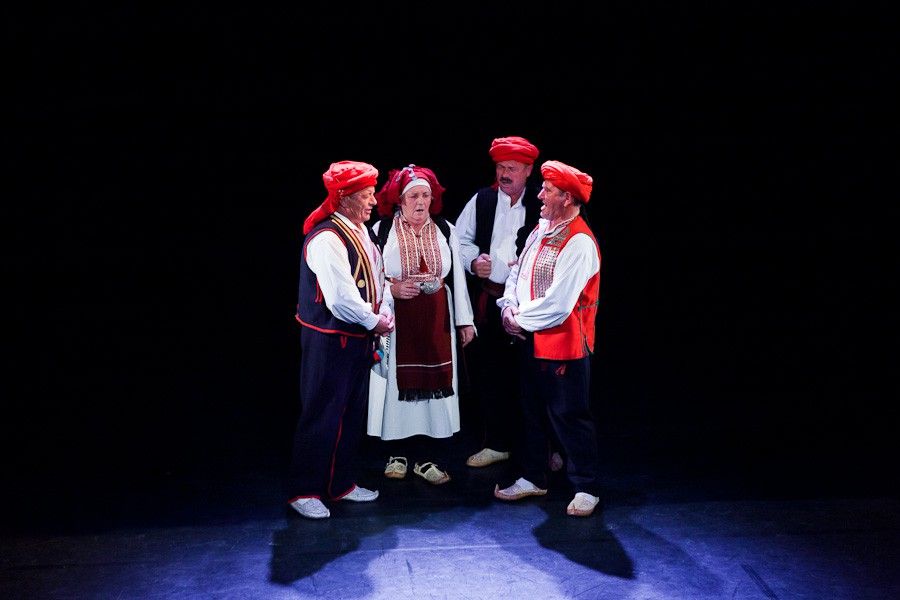
The safeguarding of this heritage would help identifiy still living traditional bearers whose performances could become a model for new generations to use. All the singers seem quite happy to share their skills. Video and audio recordings of current tradition bearers are crucial for keeping this singing alive. Communities that kept Ojkanje as part of their tradition promote it as part of their cultural life and it is performed at different public events.
Folklore groups are the first to create and organise cultural events and are often the organisers of cultural festivals and various events. Being part of the UNESCO list should offer further support and recognition by the authorities to ensure its active use in future.
One of the goals of inscribing Ojkanje singing on UNESCO’s list in need of urgent safeguarding and as cultural heritage of Croatia is to encourage different activities that will ensure the active and continual preservation of the heritage. Activities that can contribute to that overall goal are transmitting the elements of this heritage from older to younger generations, educating the locals about the importance of their cultural heritage, establishing a traditional singing centre or conducting different workshops, seminars and festivals, supporting cultural and folkore groups and promote and keep it alive, organising events which promote Ojkanje, recording and promoting singing through media, as well as the promotion of Ojkanje singing to tourists with the help of local tourist boards.
https://www.youtube.com/watch?v=v=fjm9QXUVYLA
SOURCES (text and photo): Ministry of Culture, Ganga.hr, UNESCO, Total Croatia News, Tourist Board Vrlika


